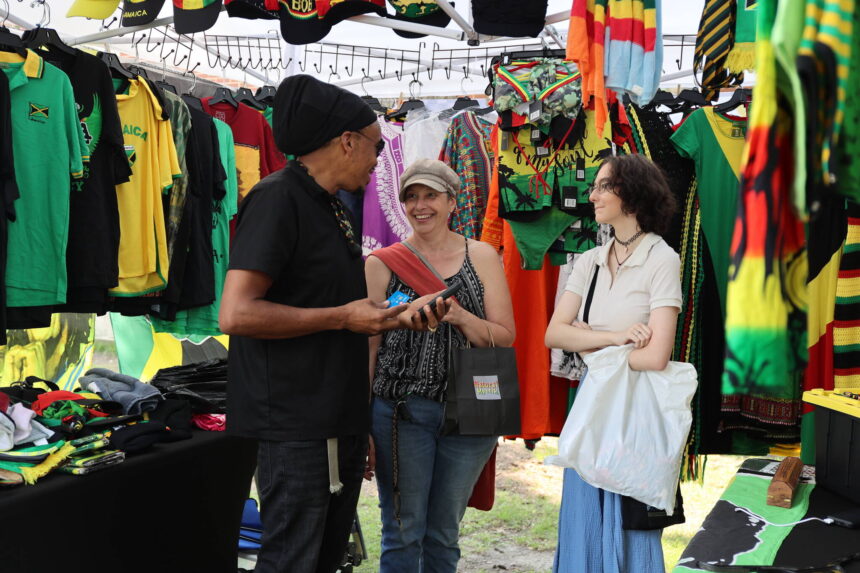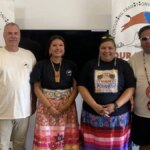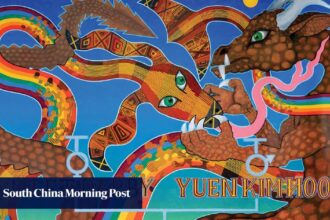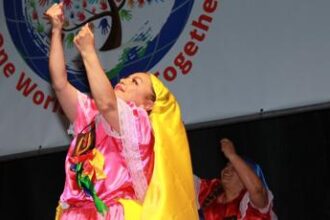The humid July air in Brandon carried something different this weekend – the aromatic blend of Nigerian spices, the vibrant cadence of West African music, and the animated conversations of community members exploring a cultural tapestry rarely displayed so prominently in Manitoba’s second-largest city.
The Nigerian Cultural Market, organized by the Brandon Nigerian Community Association, transformed the city’s central community space into a vivid showcase of heritage that bridges continents. For many visitors, it offered a first authentic glimpse into the cultural richness of a nation whose diaspora has been steadily growing in our region.
“We wanted to create something that feels like home while inviting our neighbors to experience what makes Nigerian culture special,” explained Adebayo Oluwole, the association’s president. “Food, crafts, music – these are universal languages that connect people across differences.”
Indeed, the market’s centerpiece was an impressive array of food stalls serving traditional dishes that many attendees were sampling for the first time. Jollof rice, with its distinctive tomato-infused flavor profile, emerged as an unexpected favorite among locals, while more adventurous visitors lined up for pounded yam and egusi soup, a hearty stew made with ground melon seeds and vegetables.
The significance of this cultural exchange extends beyond mere novelty. As Canadian communities become increasingly diverse, events like this represent critical opportunities for meaningful integration. Research from Statistics Canada indicates that immigrants who maintain strong cultural connections while building relationships in their new communities report higher levels of well-being and civic engagement.
“I’ve lived in Brandon for seven years, but this is the first time I’ve felt my whole self was welcome in a public space,” shared Ngozi Adeyemi, a nursing student who volunteered at the event. “Watching my Canadian friends enjoy our food and ask questions about our traditions – it matters more than people might realize.”
Beyond culinary offerings, artisans displayed intricately beaded jewelry, hand-woven textiles, and contemporary fashion that blends traditional Nigerian patterns with modern designs. Local children participated enthusiastically in storytelling sessions featuring folklore that has been passed through generations.
The market also addressed more serious cultural conversations. A small educational exhibit highlighted Nigeria’s complex colonial history and journey to independence, providing context that many visitors acknowledged was absent from their previous understanding of the country.
What made the event particularly meaningful was its collaborative nature. Local businesses contributed resources, the city provided logistical support, and community volunteers from various backgrounds helped ensure its success. This cooperation reflects a growing recognition that cultural diversity strengthens rather than divides communities.
“Events like this aren’t just about exposing people to different foods or crafts,” noted Dr. Eleanor Richardson, a sociology professor at Brandon University who attended the market. “They’re about creating spaces where people can recognize their shared humanity through cultural exchange. In our increasingly polarized world, these connections matter immensely.”
As Brandon continues to evolve as a multicultural community, initiatives like the Nigerian Cultural Market represent essential steps toward genuine inclusion. Beyond the vibrant colors and enticing aromas, the event offered something more profound – the opportunity to experience citizenship as something enriched rather than diluted by diversity.
For those who missed this inaugural event, organizers have announced plans to expand next year’s market to include more cultural demonstrations and interactive elements. If this weekend’s enthusiastic response is any indication, Brandon’s appetite for cultural exchange is only beginning to be satisfied.
In a world where differences are often weaponized, the Nigerian Cultural Market stands as a reminder that celebrating distinct heritages can bring communities closer rather than pull them apart. Perhaps that’s the most valuable item that changed hands at this remarkable gathering – not the handcrafted goods or delicious foods, but the recognition that our collective story grows richer when we welcome chapters from around the world.
For more perspectives on cultural events and community building, visit CO24 Culture or explore emerging social patterns at CO24 Trends.

























